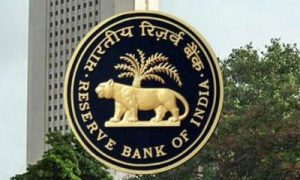JPMorgan has said that Paytm can turn profitable faster.
New Delhi: Paytm has received an ‘Overweight’ rating from JPMorgan. The rating displays the increasing confidence of global brokerage and research firms on the growth of the fintech company.
Bullish on Paytm’s performances in the coming quarters, JPMorgan has said that Paytm can turn profitable faster. The investment bank has set a target price of Rs 1,350 on Paytm.
“Paytm has a leading share in digital P2M payments and has gained a share in FY22. We are ‘Overweight’ on the strong underlying growth potential of the business,” JPMorgan noted in a report.
Besides JPMorgan, several other global banks and brokerages have recommended a ‘BUY’ rating for Paytm. These include Goldman Sachs, Bank of America, Morgan Stanley, Dolat Capital, and ICICI Securities.
Paytm recently posted third-quarter results for fiscal 2022, where it registered a robust growth of 89% Y-o-Y to Rs 1,456 crore in revenue from operations.
Meanwhile, JPMorgan also expects Paytm to see strong revenue growth across all its business segments. The brokerage firm expects revenues growing at a 50% 5-year CAGR to $2.8 billion and CMs rising to 43% by FY26E.
“Paytm is the leading “fintech horizontal” in India, having built more sources of monetization across payments, commerce and financial services than all of its competitors. This gives it the unique ability to drive monetization and profits across several segments at lower CAC vs peers,” said the report.
JP Morgan analysts are confident about Paytm’s growing contribution profit margins. The contribution profit for Q3 FY 2022 at Rs 454 crore represents a 560% year on year growth.
“Contribution margins have tailwinds in both payment and financial services business driven by growth in MDR bearing instruments and lending. Strong monthly transacting user growth and GMV/MTU are indicative of platform engagement remaining strong. The company also indicated reduction in incremental investments from UPI market leaders, which could potentially signal some rationalization in the payments business competitive intensity,” said the report.





































